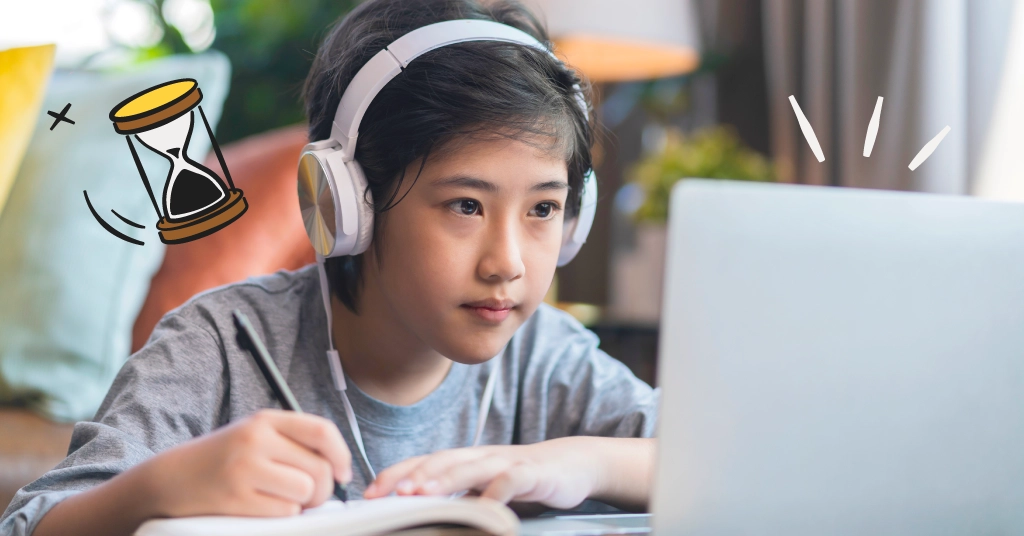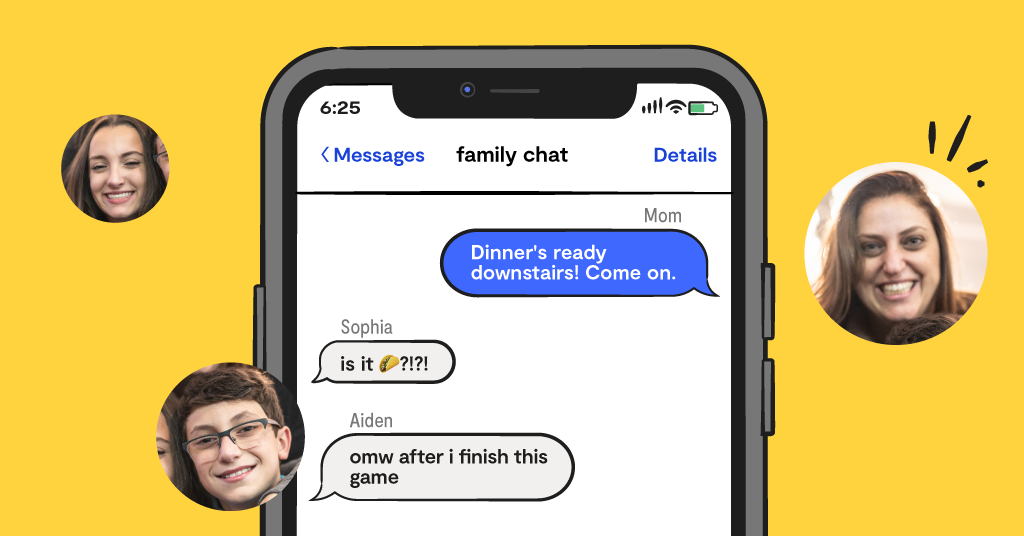
If you’re a parent, odds are you’ve seen and heard hundreds of arguments pointing to screen time's positive or negative impact on your child’s development. While there may be two sides to this argument, it's undeniable that screens have become an integral part of learning.
In this article, we’ll delve into both on the impact of screen time on learning. We’ll explore the benefits of screen time as well as the pros of limiting it — as well as how you can strike a balance with Bark’s help.
The Many Benefits of Screen Time
Screen time isn't a one-size-fits-all concept. It’s evolved to encompass many experiences, from educational apps and online courses to social media and entertainment. Screen time has several benefits when it comes to learning and education.
Access to information
Computers and phones provide instant access to a wealth of knowledge, enabling children to explore diverse subjects and learn at their own pace. Gone are the days when you had to sift through library books or encyclopedias. Now, with just a few clicks, kids can explore the cosmos and find creative new ways to tackle math problems.
Interactive learning
Learning doesn’t have to be a drag. Educational apps and programs engage children through fun, interactive lessons that foster critical thinking and problem-solving skills. Interactive learning games are especially helpful to younger children who might find it difficult to focus or stay disciplined when they aren’t interested in a topic or subject.
Visual learning
Not all students learn the same the way. For kids and teens who are more visual learners, online visual aids and multimedia content enhance comprehension and retention of complex topics like anatomy, physics, and more.
Global connectivity
Screens make communication and collaboration with experts worldwide easy. Global connections broaden children’s learning horizons as they may have access to more diverse and interesting viewpoints and teachers that they wouldn't have the opportunity to interact with otherwise.
Drawbacks of Screen Time
With all of the benefits that come along with screen time, it can also have some major drawbacks.
Reduced physical activity
If you’re spending all day looking at a screen, odds are you aren’t getting outside as much, or running around or playing actively with friends. Experts are worried this may lead to an overall more sedentary lifestyle for kids, impacting their long-term physical and mental health.
Attention and concentration
One of the biggest arguments against screen time is the effect it can have on developing brains. Several studies have delved into the potential correlation between longer screen time usage and a short attention span. In a world that already demands so much of our attention, this can greatly impact a child’s ability to focus on tasks or engage in deep learning.
Sleep disruption
Studies have shown that blue light emitted by screens can disrupt sleep patterns. Kids and children need plenty of sleep, and a lack of it can greatly affect your child’s ability to learn or perform academically.
Risk of inappropriate and dangerous content
While the internet is filled with educational videos and exciting ways to learn and grow, unmonitored screen time can expose children to things we’d rather them not see — from porn to violent videos and even messages from strangers. The more time they spend in front of screens, the more likely they’ll encounter this dangerous content.
While screens offer many educational opportunities, maintaining a balance is essential. Research suggests too much screen time can hinder cognitive development, particularly in younger children. Encouraging outdoor play, fostering face-to-face interactions and promoting hobbies that don't involve screens are crucial for holistic growth.
How Bark Can Help
Acknowledging the pivotal role screens play in children's lives, Bark offers a comprehensive solution to help parents navigate the digital landscape. With Bark's advanced monitoring and parental control features, parents can track screen time, set healthy limits and promote safe exploration. Sign up for a free trial of Bark today and pave the way for a balanced screen time journey for your kids.
Read more
Bark helps families manage and protect their children’s digital lives.





